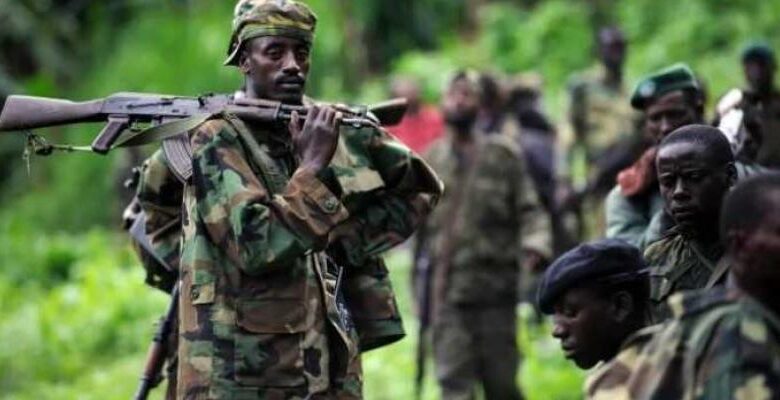DR Congo Rebels Killed At Least 131 Civilians In North Kivu Massacres, UN Says
A provisional investigation has confirmed initial statements that the killings were carried out by the March 23 rebel movement, who still control the area.

Rebels killed at least 131 civilians in two connected massacres the United Nations Joint Human Right Office (UNJHRO) has revealed, after preliminary investigations in North Kivu province of Democratic Republic of Congo.
The investigations concur with accusations the March 23 rebel carried out the killings in Kishishe and Bambo, in Rutshuru territory, on Nov 29 and 30.
According to UNJHRO, among the 131 victims, 102 were men, 17 women and 12 children. The investigations found the victims were arbitrarily executed by gunshot. There were also wounds inflicted with machetes, witnesses told investigators.
This provisional death toll also reveals that eight persons suffered bullet wounds and 60 people were kidnapped. At least 22 women and five girls were raped.
“This violence was committed within the context of a campaign of murders, rape, kidnappings and looting against these two villages of the Rutshuru territory in reprisals against clashes between the M23 and the Forces Democratiques de Liberation du Rwanda (FDLR) and the Mai-Mai Mazembe and Nyatura Coalition of Movements for Change armed groups”, UNJHRO reveals.
A spokesman for the rebels said the investigation was directed by the government in Kinshasa.
“We have given our own version of things. We have asked for investigations together with us in Kishishe but the United Nations has never come here. They have remained in the government zones and they are gathering evidence from there. Where did the 130 persons die? Let them come first in order to establish the facts. The United Nations has been under the pressure of government to come out with figures even if they are false”, declared the M23 spokesperson, Lawrence Kanyuka.
On their part, the UNJHRO says their investigators questioned 52 victims and eyewitnesses as well as diverse other sources. They revealed that from the evening of November 29 and throughout the day of November 30, members of the M23 attacked the villages of Kishishe and Bambo, breaking in doors, shooting at civilians, looting belongings and burning houses.
“Witnesses also declared that most of the survivors were stopped by M23 from leaving the sacked villages. M23 elements on their own buried the corpses of victims in what can be an attempt to destroy proofs”, the UNJHRO report reveals, adding that the investigations took place in Rwindi situated 20 kilometres from Kishishe where there is a United Nations Organisation Stabilisation Mission in the DR Congo (MONUSCO) base and where victims and witnesses took refuge after the attacks.
Kishishe is currently controlled by the M23 and because of the high risk of reprisals against victims and witnesses still present in the zone, the UNJHRO team did not go to Kishishe and Bambo.
MONUSCO and UNJHRO say they would want to go to Kishishe and Bambo within the shortest possible time to continue their investigations and the results of their investigations remain provisional for now and could evolve as time goes on.
Support Our Journalism
There are millions of ordinary people affected by conflict in Africa whose stories are missing in the mainstream media. HumAngle is determined to tell those challenging and under-reported stories, hoping that the people impacted by these conflicts will find the safety and security they deserve.
To ensure that we continue to provide public service coverage, we have a small favour to ask you. We want you to be part of our journalistic endeavour by contributing a token to us.
Your donation will further promote a robust, free, and independent media.
Donate HereStay Closer To The Stories That Matter




